Aristotle wrote this about garnet gemstones over two thousand years ago. The garnet is a red gemstone, but not like rubies; its red is much more like a flame. If correctly cut and polished, it will reveal all its beauty and perfection. Still, our love and admiration for this gemstone continues to this day, and we have discovered there is more to this gemstone than just a flaming red.
All About Garnet Gemstone
Garnet gemstones are the 'modern family' in the gem world. Not for them a basic chemical formation with one or two impurities to give a bit of color. This is the gemstone family with lots of mineral step-sisters, chemical half-brothers, long lost crystal cousins, and strange geologic uncles.
This type of closely related minerals has given us a variety of gemstones that appear in almost every color, most often or famously red, but also include some outstanding greens, oranges, and pinks, and even some purples, despite what some say, blues. About Garnet gemstones, these are basically the same crystal structure made up of oxygen and silica with an assortment of minerals and elements added to create variations. This variation forms dozens of categories, but only a few of these species are important to those interested in the gemstone side of the family.
Types of Garnet Stones:
The garnet gemstone is broken down into several different types we know and love. Other types of garnet stones are not used for gems but are used as sandpaper, as filters, for waterjet cutting and blasting, and for many other industrial uses. There are six generally accepted types of garnet stones as follows.
Almandine: The most common form of garnet gemstone, which is usually dark red to reddish-brown in color. Almandine is the hardest type of garnet and, when clear enough, is cut for use in many styles of jewelry.
Pyrope: Perhaps the most well-known garnet, the deep red variety that can rival rubies, is the most valued of this type.
Spessartite: At their best, this type of garnet is an exact bright orange color with exceptional brilliance, making it the most sought-after gemstone.
 Grossular:
Grossular: In their purest state, this form of garnet is colorless, but impurities can turn this gemstone into several beautiful colors, including the rare green Tsavorite, one of the most valuable garnet gemstones available.
Andradite: This is the most lustrous of the garnet gemstones and comes in a variety of colors, most famously green or black, but the term Andradite is not often used when describing gemstones, usually broken down into different groups or types, including the highly prized Demantoid garnets.
Uvarovite: Uniquely for a garnet gemstone, this gemstone only appears in green color. It is very rare and typically comes in very small crystals.
 About Garnet Gemstone
About Garnet Gemstone
These are the six major types of garnet stones, and these are the six formally recognized names for the garnet gemstone family, but these are then divided further into groups depending on things such as trade names, sources, colors, or are a blend of two or more of the above species.
Part of the garnet gemstone charm and appeal is working out where each garnet fits in this diverse family. Rhodolites are a blend of almandine and pyrope and possess a delightful purple hue; Malaya is a mixture of spessartite and pyrope and is pinky-orange to reddish-orange in color and sometimes called Imperial Garnet.
Another almandine/pyrope mix is Color-Change Garnets, discovered in Tanzania and Madagascar, which have this rare ability to change color, whether they are in artificial light or sunlight. An unusual form of garnet gemstone worth mentioning here is the Star Garnet, mostly opaque with reddish-black or brownish-red coloring and displaying a 4-rayed star or sometimes even a 6-rayed star.
This phenomenon is caused by flaws in the rutile needle inclusions, which are correctly aligned to reflect light in a star-shaped pattern. In addition, we have the precious green garnet, Tsavorite, the orange-colored Hessonite, the dark red or black Melanite, the pinkish-red Raspberry Garnets, the green Demantoids, and the greenish-yellow Mali garnet.
This is but a few compared to the long list of garnet varieties obtainable. Some weird-sounding names are used for many sub-types of garnet stones, such as Mandarin, Mint, Gooseberry, Masai Blue, Native Sunset, which may or may not be fine gemstones, but the names have been invented in the gemstone marketing offices. Of course, some forms of garnet are more valuable than others.
We will discuss Garnet Gemstone color, clarity, cut, and carat in detail in another article, but here is a general indication of which type of garnet gemstone is the most expensive. Tsavorite Garnets, mined in East Africa, are stunning green gems only recently discovered, and prime examples can fetch up to five thousand dollars per carat or even more.
Demantoid Garnet gemstone is full of fire and brilliance, and gemstones sourced from the Ural Mountains in Russia are possibly the rarest form. These Russian gems can be thousands of dollars per carat, while Demantoid Garnets found in Namibia are still beautiful but much more affordable. After reading this post, you now have an understanding of Garnet Gemstone origination and basic knowledge.
 Grossular: In their purest state, this form of garnet is colorless, but impurities can turn this gemstone into several beautiful colors, including the rare green Tsavorite, one of the most valuable garnet gemstones available.
Grossular: In their purest state, this form of garnet is colorless, but impurities can turn this gemstone into several beautiful colors, including the rare green Tsavorite, one of the most valuable garnet gemstones available.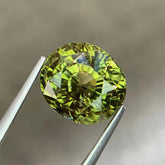

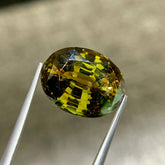

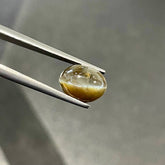
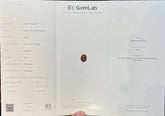
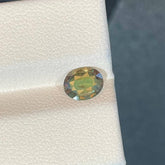
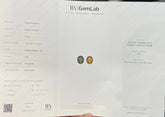
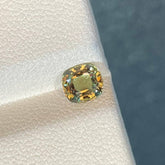
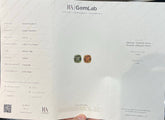
 About Garnet Gemstone
About Garnet Gemstone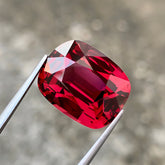

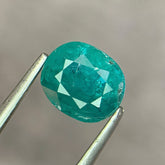

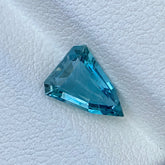

Leave a comment
Please note, comments need to be approved before they are published.